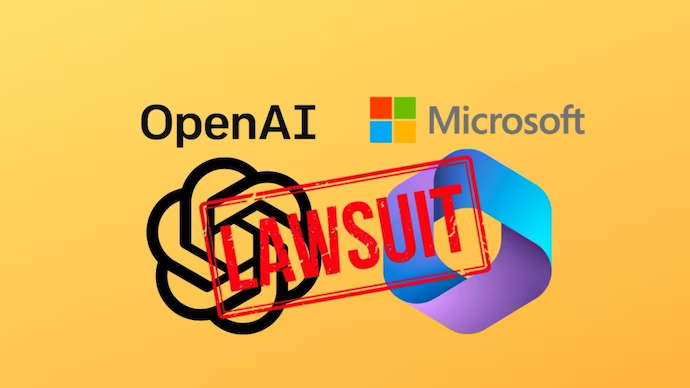
In New York, The New York Times filed a lawsuit against OpenAI and Microsoft on Wednesday (Dec 27), alleging that they used millions of the newspaper’s articles without permission to train chatbots for delivering information to readers.
The Times claims to be the first major US media organization to take legal action against OpenAI, the developer of the widely used artificial intelligence platform ChatGPT, and Microsoft, an investor in OpenAI and the creator of the AI platform currently named Copilot. The lawsuit revolves around copyright concerns related to The New York Times’ content.
Writers and various individuals have taken legal action to curb the scraping, or automatic data collection, by AI services of their online content without proper compensation.
In a complaint filed in the Manhattan federal court, The New York Times accused OpenAI and Microsoft of attempting to “free ride on The Times’s massive investment in its journalism” by utilizing it to offer alternative channels for delivering information to readers.
The Times asserted that utilizing The Times’s content without payment to create products that compete with and divert audiences from The Times is not truly “transformative.”
OpenAI and Microsoft argue that using copyrighted works for training AI products falls within the bounds of “fair use,” a legal doctrine governing the unlicensed use of copyrighted material.
The US Copyright Office’s website notes that “transformative” uses involve introducing “something new, with a further purpose or character,” making them “more likely to be considered fair.”
The Times is not specifying a particular amount for damages but estimates damages in the “billions of dollars.” Additionally, it is requesting that OpenAI and Microsoft eliminate chatbot models and training sets that incorporate its content.
Despite unsuccessful discussions to prevent legal action and enable “a mutually beneficial value exchange” with the defendants, the 172-year-old newspaper remains committed to protecting its rights.
OpenAI expressed surprise and disappointment at the development, stating, “We respect the rights of content creators and owners. Our ongoing conversations with the New York Times have been productive and moving forward constructively, so we are surprised and disappointed with this development.”
Microsoft did not respond to requests for comment.



